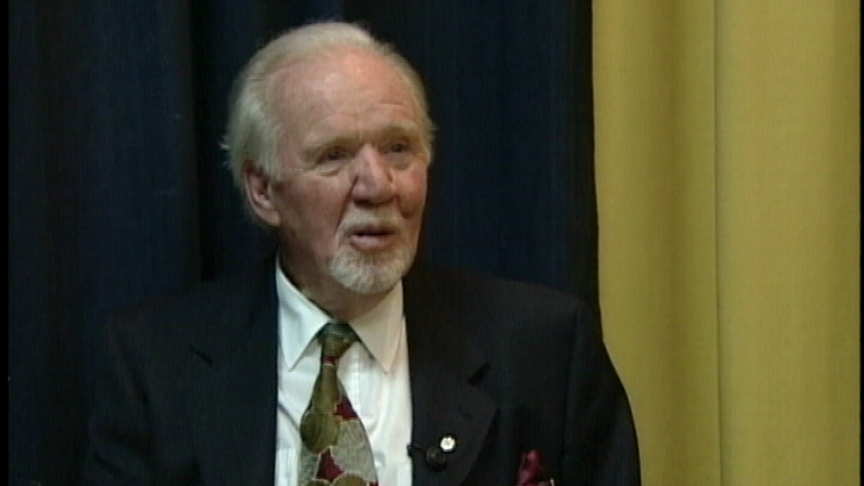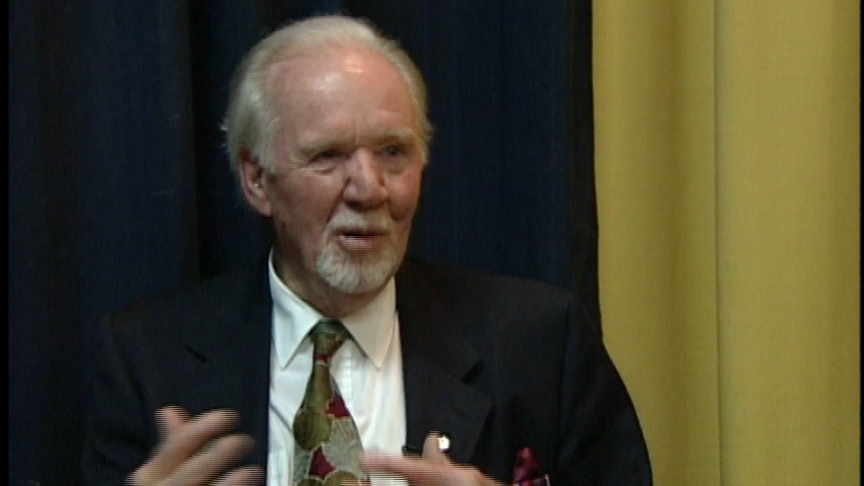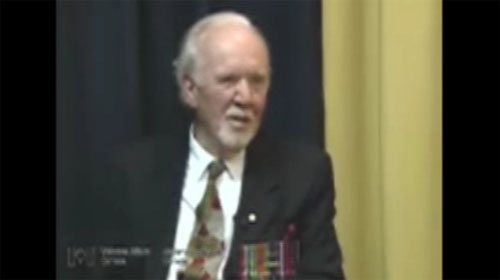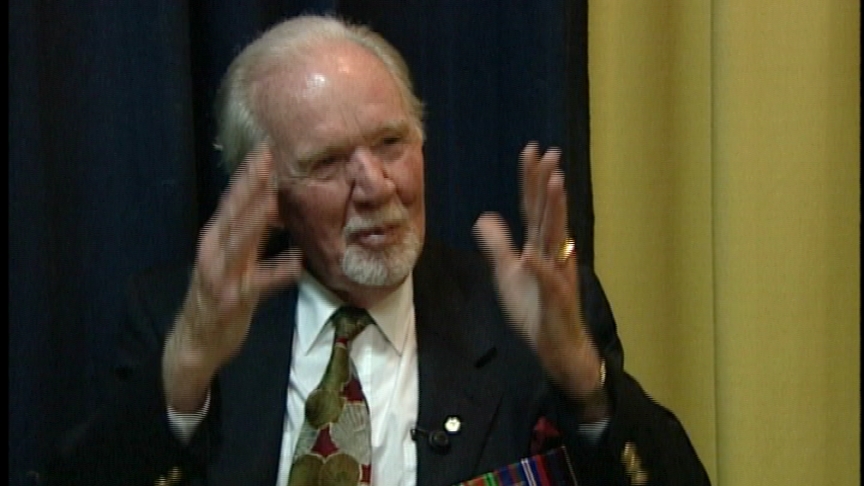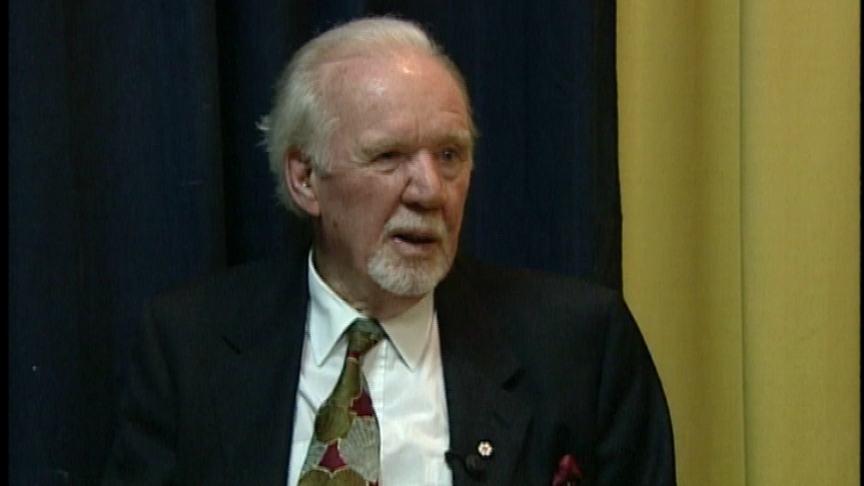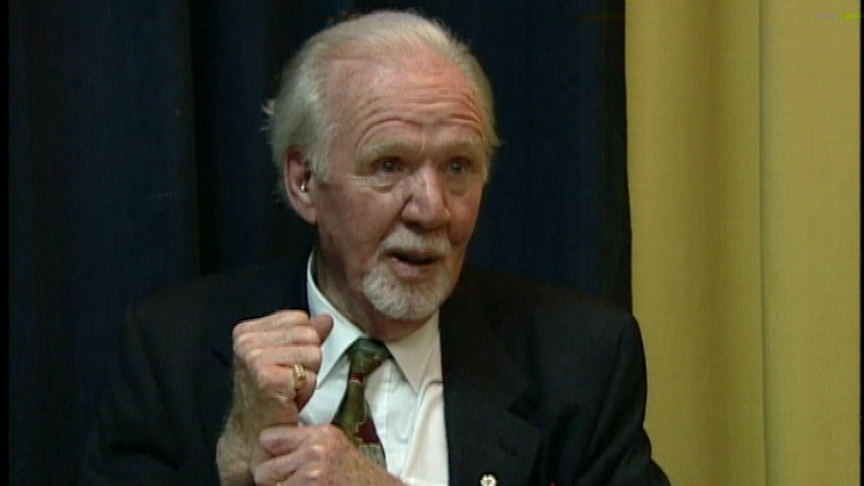Hong Kong POW
Heroes Remember
Hong Kong POW
Transcript
I think we started off at about, if I remember correctly, in the
neighbourhood of 500 -750 calories a day. It was generally,
you know rice and a few greens. But that quickly was reduced and
I think within a year, we were down to about 250 calories a
day. And of course, that's when the beri-beri and all of the
other malnutrition problems started to appear. And things
just, well they just got worse. The war wasn't going well for
them and the, certainly our treatment wasn't going well for us.
Interviewer: The rice that you mentioned that was the staple of
your diet, how much rice would this translate into? How much
rice per day would each man have?
Oh gosh, I would say that a couple of big spoonfuls of rice.
That's about it and it was all polished rice, as you know. It
certainly didn't fill the tummy.
Interviewer: You mentioned diseases were starting to run
through the camp. (Yep.) In fact, some of the men who had
been injured or wounded during the fighting, did they receive
medical care?
Some of them were sent up to another hospital, I think it was
called Bowen Road hospital. Most of them that had wounds for
treatment were sent to Bowen Road and the rest of them with
minor problems stayed in the camp and we had our own doctors but
they had no medicine to treat people. I used to watch these
poor doctors try to comfort the patients but there was very
little that one could do and I think the worst thing that I ever
saw was people dying from hiccups. I don't know if you've
ever heard of a person dying from hiccups but the weakened
condition and they just start to bubble both, they, they just
couldn't stop. And the doctors knew there was nothing they could
do for them because it's something to do with the nervous
system apparently. But the interesting part of it was if
they sprayed ether on them and put them under, they'd stop. But
as soon as they come out of it, back and they'd be dead in twelve
hours. But that was just a part of the weakening condition and
the destruction of the individual.
Description
The diet fed to the Hong Kong Prisoners of War by the Japanese is described by Mr. Purse.
Ross Purse
Ross Purse was born in Roland, Manitoba on September 10, 1918. He has one brother and five sisters in what he describes as a close-knit family. Their father died when Ross was just 10 years old. He enlisted with the Winnipeg Grenadiers within hours of Canada declaring war on Germany in September, 1939. Following training in Winnipeg, he was sent to Jamaica in defence of the island and for duty at prisoner of war camps for captured Germans. He returned to Winnipeg and was put aboard a train travelling west, eventually arriving in Vancouver from where he and his comrades sailed for the British colony of Hong Kong.
Meta Data
- Medium:
- Video
- Owner:
- Veterans Affairs Canada
- Duration:
- 02:46
- Person Interviewed:
- Ross Purse
- War, Conflict or Mission:
- Second World War
- Branch:
- Army
- Units/Ship:
- Winnipeg Grenadiers
Related Videos
- Date modified:



